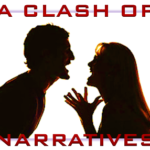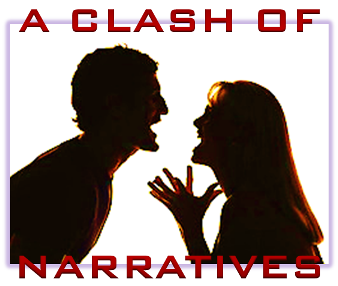
 It has recently occurred to me that, while tyranny and oppression can be understood through literature, they cannot be effectively opposed through literature. Stories like Orwell’s classics Nineteen Eighty-Four and Animal Farm, or Kurt Vonnegut’s most excellent “Harrison Bergeron,” outline rather brilliantly the dangers of authoritarian politics, yet people who are familiar with these literary warnings don’t heed them.
It has recently occurred to me that, while tyranny and oppression can be understood through literature, they cannot be effectively opposed through literature. Stories like Orwell’s classics Nineteen Eighty-Four and Animal Farm, or Kurt Vonnegut’s most excellent “Harrison Bergeron,” outline rather brilliantly the dangers of authoritarian politics, yet people who are familiar with these literary warnings don’t heed them.
This is largely due to partisanship. Folks on the Right see clearly the Orwellian implications of explicitly discriminatory laws that are defended in the name of “equality” while folks on the Left are abundantly aware of the Orwellian nature of giving up civil liberties in the name of “freedom.”
But, dear reader, if you fall into one of those two camps, I bet you bristled at half of the above paragraph. It’s not Us, it’s Them! Of course it is. It’s always Them.
It is illustrative to remember that, even as they were herding Jews into death camps, Aryanists were convinced that it was the Jews who were conspiring to exterminate Germans. Their aggression (whether real or imagined) is a “conspiracy” while Ours is a “solution.” The Dolchstoβ talking point also allowed the Nazis to ignore the fact that over half a million Jews died fighting for Germany during World War I, at rates comparable to non-Jews, a fact integral to my treatment of Golem.
But, who needs facts that inconveniently exculpate the Other when We have an enabling threat myth? The Other is always comfortingly Other, while facts can be stubbornly against Us, a reality that equally stubborn Patriots had to be reminded of during the embarrassing trial that ensued after the so-called Boston Massacre.*
Understanding how this phenomenon works, the partisan capacity to short-circuit cognitive dissonance, we need look no further than Orwell himself, who described the process of “doublethink” in Nineteen Eighty-Four:
To know and not to know, to be conscious of complete truthfulness while telling carefully constructed lies, to hold simultaneously two opinions which cancelled out, knowing them to be contradictory and believing in both of them, to use logic against logic, to repudiate morality while laying claim to it … to forget, whatever it was necessary to forget, then to draw it back into memory again at the moment when it was needed, and then promptly to forget it again, and above all, to apply the same process to the process itself—that was the ultimate subtlety; consciously to induce unconsciousness, and then, once again, to become unconscious of the act of hypnosis you had just performed. Even to understand the word ‘doublethink’ involved the use of doublethink … [T]o deny the existence of objective reality and all the while to take account of the reality which one denies—all this is indispensably necessary.
Those who believe that burning books, banning books, or attacking them as “offensive” (thus effectively burning them from serious consideration) is necessary for establishing tyrannous politics are mistaken. People can read about Vonnegut’s Handicapper General and still promote an equivalent legal regime using ideological handicaps rather than physical ones. People can know full well the absurdity of “All animals are equal, but some animals are more equal than others” yet still act on it, either in regard to civil rights politics or free market economics.
The bonfires are utterly unnecessary. The human mind can simply burn away the logic that ties those ideas to their external expression.
_
* I am reminded of the exceptional line given to John Adams in HBO’s remarkable series (a line I’m not sure he ever actually uttered in real life) in response to Sam Adams’s demand to declare which side he was on after John took the Boston Massacre case in defense of the British: “I am for the law, cousin. Is there another side?”
Or, as Herman Melville put it: “One who desires to be impartially just in the expression of his views, moves as among sword-points presented on every side.”

 A new Publishers Weekly salary survey of people in the publishing industry is being used to confirm the narrative of the gender pay gap. But if you scratch below the surface, what it really reveals is that—even though they dominate (~70%) non-managerial jobs more than they dominate (51%) management—women in publishing actually get paid and promoted more for their experience and commitment than men do.
A new Publishers Weekly salary survey of people in the publishing industry is being used to confirm the narrative of the gender pay gap. But if you scratch below the surface, what it really reveals is that—even though they dominate (~70%) non-managerial jobs more than they dominate (51%) management—women in publishing actually get paid and promoted more for their experience and commitment than men do.




 There’s an
There’s an 
 The July-August issue of Discover tackles the current, confusing naming convention for planets outside our solar system. They go through the pros and cons of several possible plans for the future, including the existing scientific designations, various mythologies, a taxonomical method, and a sort of popularity contest model where the public votes on names. You can see
The July-August issue of Discover tackles the current, confusing naming convention for planets outside our solar system. They go through the pros and cons of several possible plans for the future, including the existing scientific designations, various mythologies, a taxonomical method, and a sort of popularity contest model where the public votes on names. You can see  When I first heard of Amazon’s “bullying” tactics against Hachette, I was shouting angrily right along with the herd … I mean crowd.
When I first heard of Amazon’s “bullying” tactics against Hachette, I was shouting angrily right along with the herd … I mean crowd.
 Something odd occurred to me this morning concerning the concept of grammatical number.
Something odd occurred to me this morning concerning the concept of grammatical number.
 It has recently occurred to me that, while tyranny and oppression can be understood through literature, they cannot be effectively opposed through literature. Stories like Orwell’s classics Nineteen Eighty-Four and Animal Farm, or Kurt Vonnegut’s most excellent “Harrison Bergeron,” outline rather brilliantly the dangers of authoritarian politics, yet people who are familiar with these literary warnings don’t heed them.
It has recently occurred to me that, while tyranny and oppression can be understood through literature, they cannot be effectively opposed through literature. Stories like Orwell’s classics Nineteen Eighty-Four and Animal Farm, or Kurt Vonnegut’s most excellent “Harrison Bergeron,” outline rather brilliantly the dangers of authoritarian politics, yet people who are familiar with these literary warnings don’t heed them.
 There’s a new push toward completing the promise of the American revolution, No Taxation Without Representation. Residents of the District of Columbia pay federal taxes, yet have no vote in either house of Congress. There are two ways to remedy this long-standing oversight: grant the District immunity from federal taxes, or grant it statehood.
There’s a new push toward completing the promise of the American revolution, No Taxation Without Representation. Residents of the District of Columbia pay federal taxes, yet have no vote in either house of Congress. There are two ways to remedy this long-standing oversight: grant the District immunity from federal taxes, or grant it statehood.